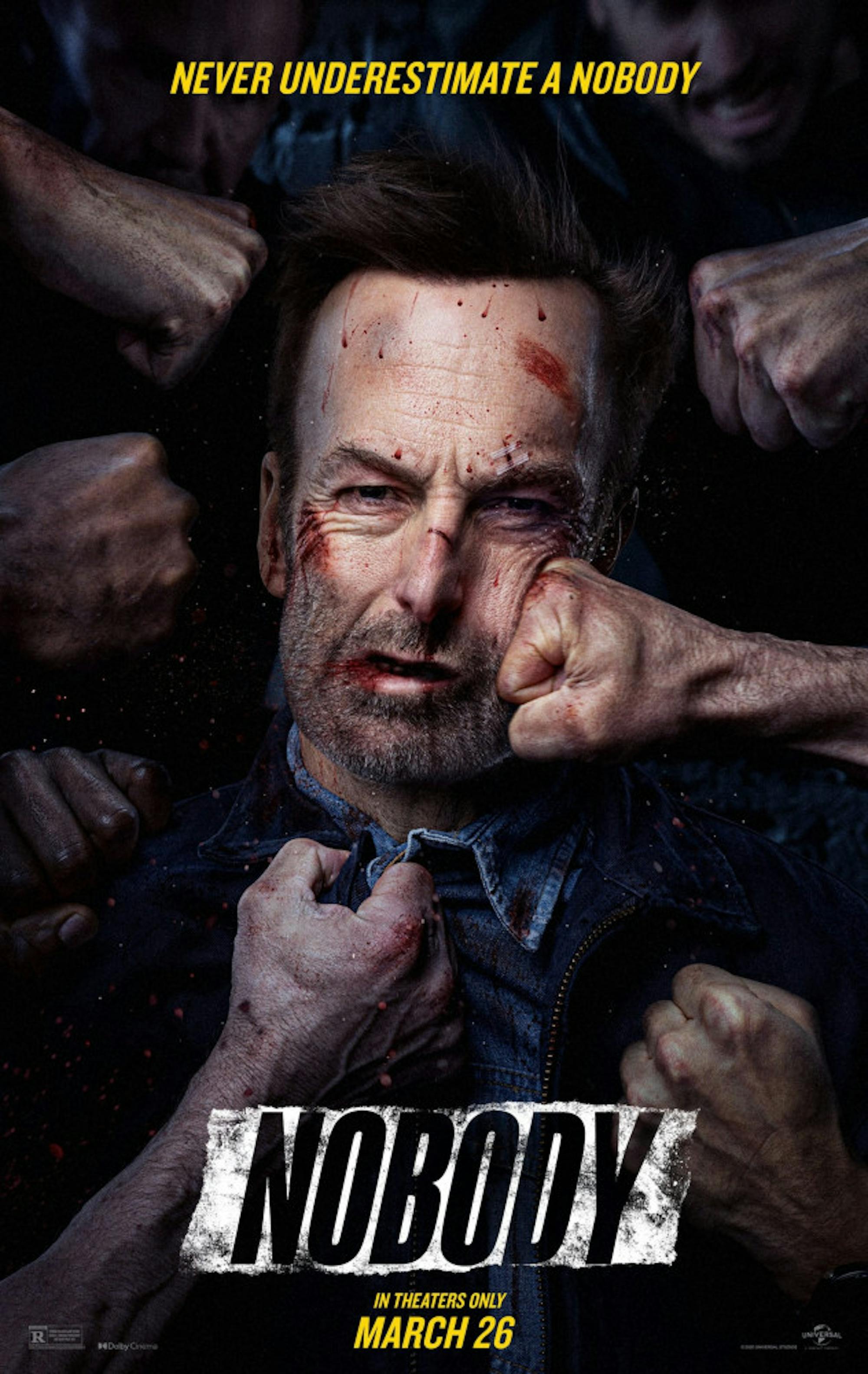"John Wick" (2014) ran so that "Nobody" (2021) could ... walk? In recent years, the creative talent behind the "John Wick" franchise (2014–) have found their way into many different films. "John Wick" co-director David Leitch went on to direct "Atomic Blonde" (2017), "Deadpool 2" (2018) and "Fast & Furious Presents: Hobbs & Shaw" (2019). Meanwhile, the main director of "John Wick," Chad Stahelski, will be heading the recently announced movie based on the hit PlayStation video game, "Ghost of Tsushima" (2020). And, after penning the first three "John Wick" films, writer Derek Kolstad emerged with "Nobody."
Directed by Ilya Naishuller of "Hardcore Henry" (2015) fame, the film has action pedigree behind it. Bob Odenkirk stars as Hutch Mansell, the protagonist. Odenkirk was the perfect choice for the role. He embodies the everyman quality integral to the character, but also the quiet intensity lurking just beneath the surface. The film uses this innocuous appearance to sell his persona. While John Wick may have been a highly trained assassin in hiding, Hutch appears to be a normal guy — he's married with two kids, living in stereotypical suburbia and holding down a 9-to-5 desk job. His life is aggressively unremarkable. The film pulls the audience in with this monotony, with viewers vicariously experiencing the same day-to-day routine as Hutch does himself.
That is, at least, until an unexpected event pulls him out of this cycle. Here is where "Nobody" begins to show its true self. The film excels at the fast-paced, thrilling action that fans of the "John Wick" series expect. The shots are wide enough for the action to be clear while maintaining the tactile feeling of every impact and explosion. But Hutch is a different kind of person than Wick, and his style suits the character. In the beginning, he fights scrappier than Wick. He trades blows, taking just as many hits as he delivers. He uses whatever tool is at his disposal, be it a weapon or a common household item. This adds an improvisational feel to the fighting reminiscent of "John Wick."
Speaking of "John Wick," one of the reasons that the franchise's action is similarly satisfying is because the hero is not invulnerable. He takes hits and needs to be patched up after most fights. "Nobody" takes this to an extreme, however. After the first real action that Hutch experiences, he’s about as badly hurt as Wick is after an entire movie. He fights through the pain in a manner that can be described only as relentless.
Don’t be mistaken, though, because Hutch is definitely not a hero. Essentially, Hutch is experiencing an incredibly violent mid-life crisis, and it just so happens that the people he’s attacking are bad people. Therefore, Hutch's urges to fight are justified. The film leans into this mindset with its comedy. The one-liners, muscle car and classic rock music all feel like what your dad might think is an action hero. Odenkirk uses this contradiction to great effect, toeing the line between gruff coolness and cringy dad humor. The film's awareness of this irony also makes its darker moments more effective as comedy instead of just gratuitous violence.
What prevents the film from reaching the heights of its spiritual predecessors is its pacing. It constantly feels like it's stopping and starting, with little direction beyond which fight Hutch decides to pick next. The backstory that they tell in bits and pieces is interesting, but it’s hurt by Hutch’s lack of goals following his first fight. Like its main character, "Nobody" often feels like it’s looking for something to do. John Wick’s goal of getting revenge against those who killed his dog — the last gift from his deceased wife — may have been simple, but its clear end point meant the film always had a driving force.
"Nobody" is by no means a flop for Kolstad, but its structural issues prevent it from being consistent. It exhibits all of the positive elements to be expected of the writer, even if there is a lack of cohesion. For fans of gritty action with a sarcastic wink, "Nobody" still comes with a recommendation, albeit with an asterisk.






